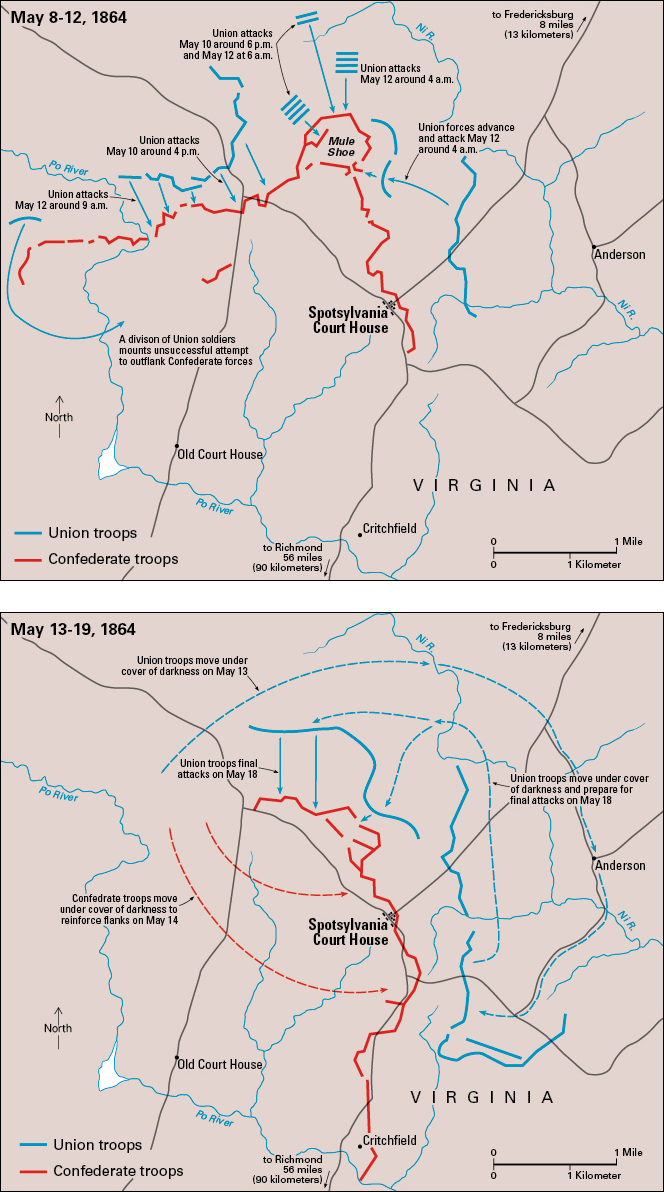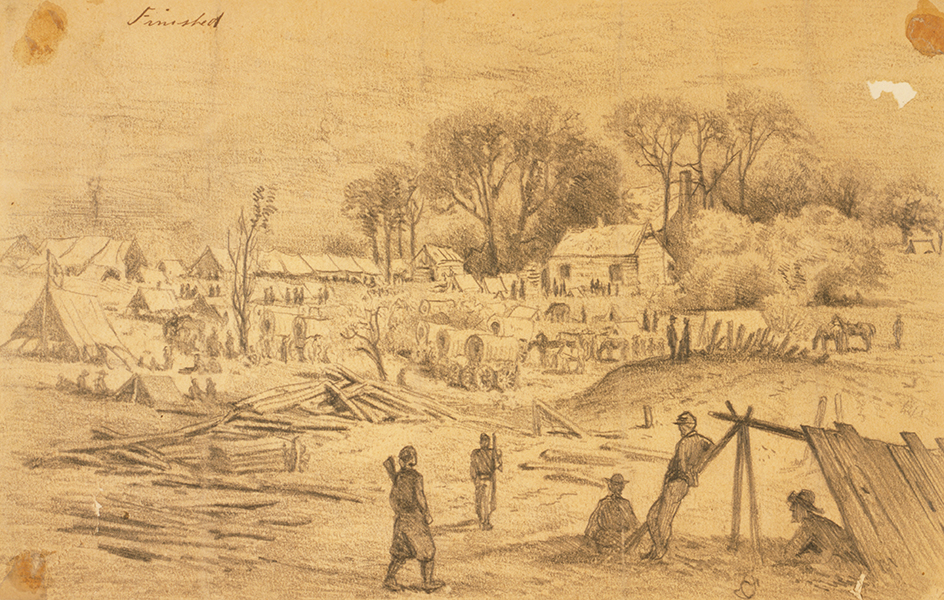Spotsylvania Court House, Battle of, was one of the most violent battles of the American Civil War (1861-1865). The battle, named after a village on the battlefield, took place in eastern Virginia from May 8 to May 19, 1864. Union General Ulysses S. Grant led 100,000 soldiers against Confederate General Robert E. Lee’s army of 52,000. Both sides suffered heavy losses. The Union suffered nearly twice as many casualties as the Confederates, but Grant was nevertheless able to continue his drive toward the Confederate capital at Richmond, Virginia.


On May 5 and 6, 1864, Lee’s Confederate army and Grant’s Union army clashed at the Battle of the Wilderness, a costly battle for both sides. Grant’s army suffered more than twice as many casualties as Lee’s, but he did not retreat. Instead, he continued his advance toward Richmond. Grant hoped to arrive before Lee at Spotsylvania Court House, a village where many of the area’s roads converged, so that Lee would be forced to fight out in the open. Lee anticipated Grant’s move and also led his army south.
On May 8, Confederate troops reached Spotsylvania Court House before the Union army could arrive. Both sides reinforced their lines during the day, and the Confederates dug defensive trenches that night. The following day, the Confederates strengthened their entrenchments while Grant searched for a place to attack Lee’s lines. Trying to reassure his troops, Union General John Sedgwick said that the Confederates “couldn’t hit an elephant at that distance.” Moments later, he was killed by a sharpshooter. Sedgwick became one of the highest-ranking Union officers killed in the Civil War.
On May 9 and 10, the Union troops attacked one of the Confederate flanks (sides) and also made a frontal assault, but Lee repulsed both advances. On the night of May 10, Union Colonel Emory Upton attempted another assault at a point on the Confederate entrenchments called the “Mule Shoe.” Upton’s strategy was to charge on a narrow front without stopping to fire, create a small gap in the lines, and then have the troops fan out and attack the Confederates with the help of reinforcements. Upton’s 5,000 troops achieved initial success, but they were forced to retreat when Union reinforcements did not arrive. Grant was impressed with Upton’s strategy and promoted him to general. Grant planned a similar attack for May 12, but on a much larger scale.
Grant did not attack on May 11, and Lee received reports that Union supply wagons were moving to the rear. Lee supposed that Grant was planning to withdraw from his position, so he ordered 22 cannons to be removed from the Mule Shoe and readied for movement.
On the morning of May 12, about 60,000 Union troops attacked the Mule Shoe, which was no longer defended by the cannons. The Confederates brought back the cannons, but only in time for the cannons to be captured. The Union attack was successful until a Confederate counterattack stopped it. For about 18 hours, the two sides engaged in vicious hand-to-hand fighting. Because of the ferocious violence, the Mule Shoe earned a new nickname—the “Bloody Angle.” That night, the Confederates withdrew from the Bloody Angle and moved about half a mile (0.8 kilometer) to a new line of trenches.
From May 13 to May 16, heavy rains slowed the fighting. On May 18, Grant attacked the Confederates and was defeated. The next day, Lee attacked the Union army and also was repulsed. Grant decided that another frontal assault would most likely fail, so he withdrew the Union army from Spotsylvania Court House on May 20.
During the course of the battle, the Union army suffered about 18,000 casualties and the Confederates about 10,000. From May 5 to May 19, at the battles of the Wilderness and Spotsylvania Court House, nearly a third of the soldiers on both sides were killed, wounded, or captured. And more bloodshed would follow. Grant, again, moved his army south toward Richmond, and Lee, again, followed him. On June 1, the two sides would meet at Cold Harbor in Virginia.
See also Civil War, American ; Grant, Ulysses S. ; Lee, Robert E. ; Wilderness, Battle of the .
